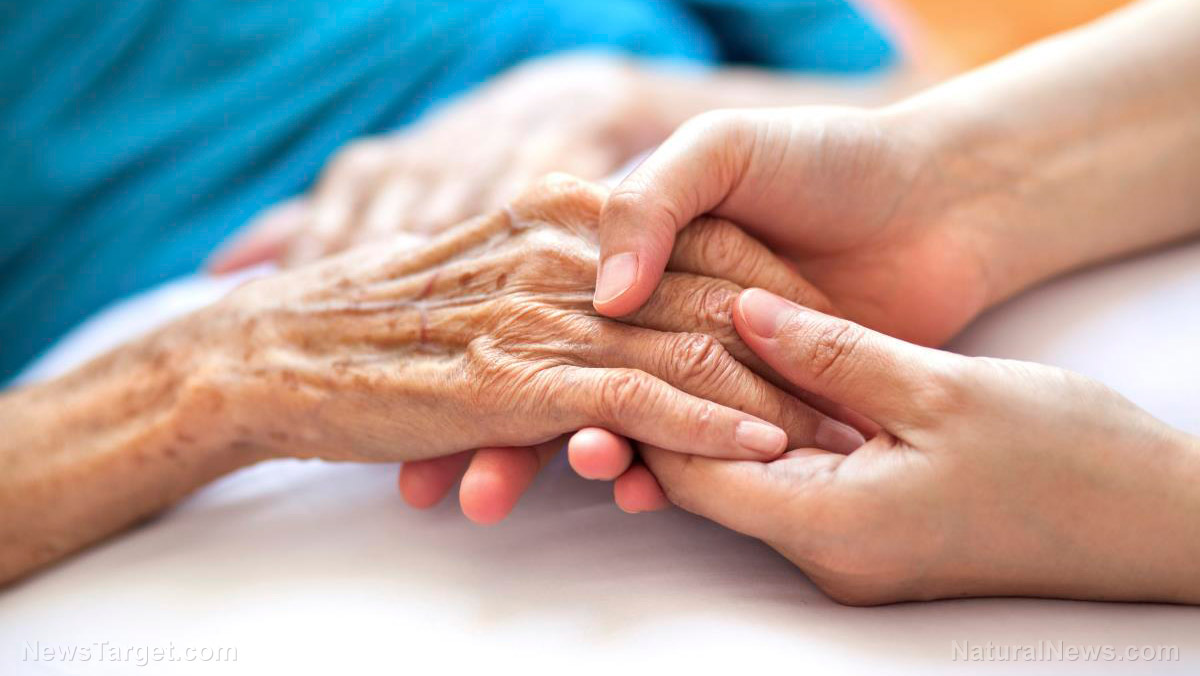Rate of suicide among the elderly is up, mainly due to disease: Here are 4 tips to help those at risk
07/24/2018 / By Frances Bloomfield

Suicide rates among older Americans have reached a disturbing peak. According to Drs. Namkee G. Choi and Diana M. DiNitto, both social work professors at The University of Texas at Austin, more people aged 50 and above have died by suicide than young people. Speaking in a press release, Choi remarked: “Many people may not know that suicide rates are higher among older than younger adults. This is especially true for older men, who are approximately 85 percent of all suicide victims aged 65 years or older.”
The primary driving forces behind these actions, the researchers discovered, are debilitating physical conditions (such as the pains from cancer and arthritis) and untreated depression. They noted that for many older adults, especially men, suicide was viewed as a reasonable and acceptable option when physical illness had become too much to bear.
To arrive at this sordid conclusion, Choi and DiNitto combed through 10 years’ worth of data on older adults from 16 states, all of whom had died by suicide. They looked at death certificates, toxicology reports, coroner assessments, and, when available, summaries of suicide notes. Going over all of these materials allowed the researchers to make a note of important trends that ran rampant among the older generation of Americans. (Related: Increased suicide rate in military blamed on conditions other than combat and prescription drug abuse.)
On their findings, DiNitto said: “Rather than a reason for making suicide acceptable, this is a call to take measures to relieve the pain and suffering that precede suicide.”
To that end, DiNitto and Choi have put out four helpful and important tips to help prevent suicide among older adults.
- Recognize the signs of suicidal behavior and learn how to offer support: Social isolation, family discord, feelings of hopelessness, difficulty adapting to change, and giving away prized possessions are all warning signs of suicidal behavior. If you observe these symptoms, as well as others listed on MentalHealthAmerica.net, in an older adult, encourage them to seek the help they need and assist them in finding it. A mental health clinician can be contacted for assistance should you be uncomfortable talking about suicide.
- Heed disclosures: A disclosure is a cry for help and one that should be taken seriously. If this happens, you can try talking with the person and discuss their feelings, find reasons for living, and come up with safety plans. A safety plan would typically include listing contacts should a crisis arise, limiting access to possible means of suicide, and identifying any potential suicidal triggers. Other recommendations include coping cards, which contain steps to take in case suicidal thoughts occur, and hope boxes, which should be filled photos, videos, letters, and other materials that have personal meaning to the older adult.
- Don’t mix alcohol and guns: “The lethality of firearms makes the chance of rescue slim and contributes to higher rates of completed suicides among older adults,” explained Choi. Researchers have pointed out that a good number of adult suicides have involved the use of a gun. Adding alcohol can be a deadly mix — it’s often been used to lower inhibitions on suicidal thoughts.
- Look for reliable palliative care providers: This kind of specialized medical care aims to relieve the pains associated with serious illness and improve a patient’s quality of life. Palliative care can be offered during the early stages of a disease, making it easier for the patient to deal with the side effects of medical treatments.
If you’re looking for more advice regarding the sensitive topic of suicide, feel free to go to Psychiatry.news today.
Sources include:
Tagged Under: assisting the elderly, longevity, mental health, mind body science, psychiatry, Psychology, senior citizens, senior health, suicide, Suicide prevention, suicide risk
RECENT NEWS & ARTICLES
COPYRIGHT © 2017 BRAIN NEWS


















